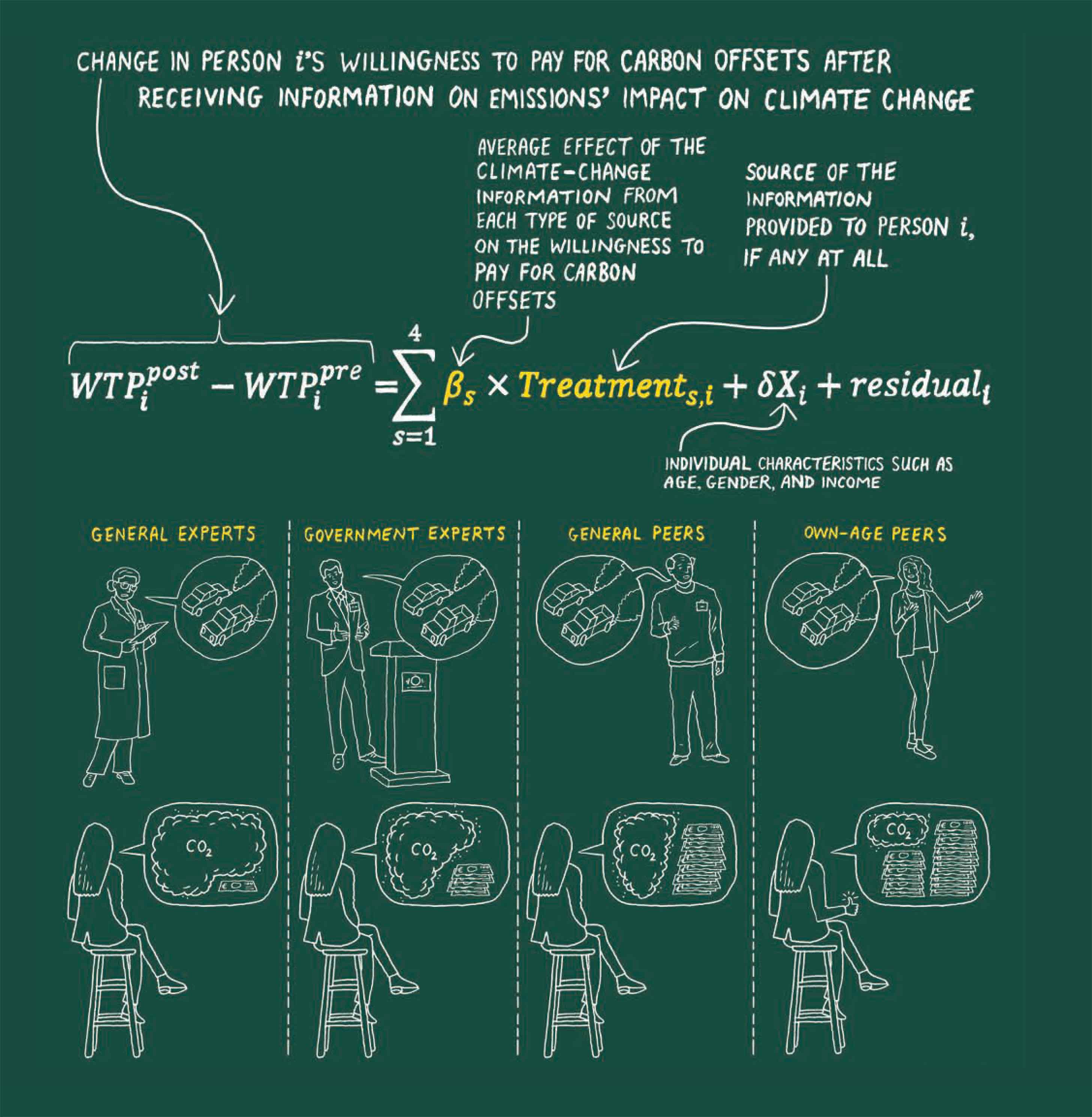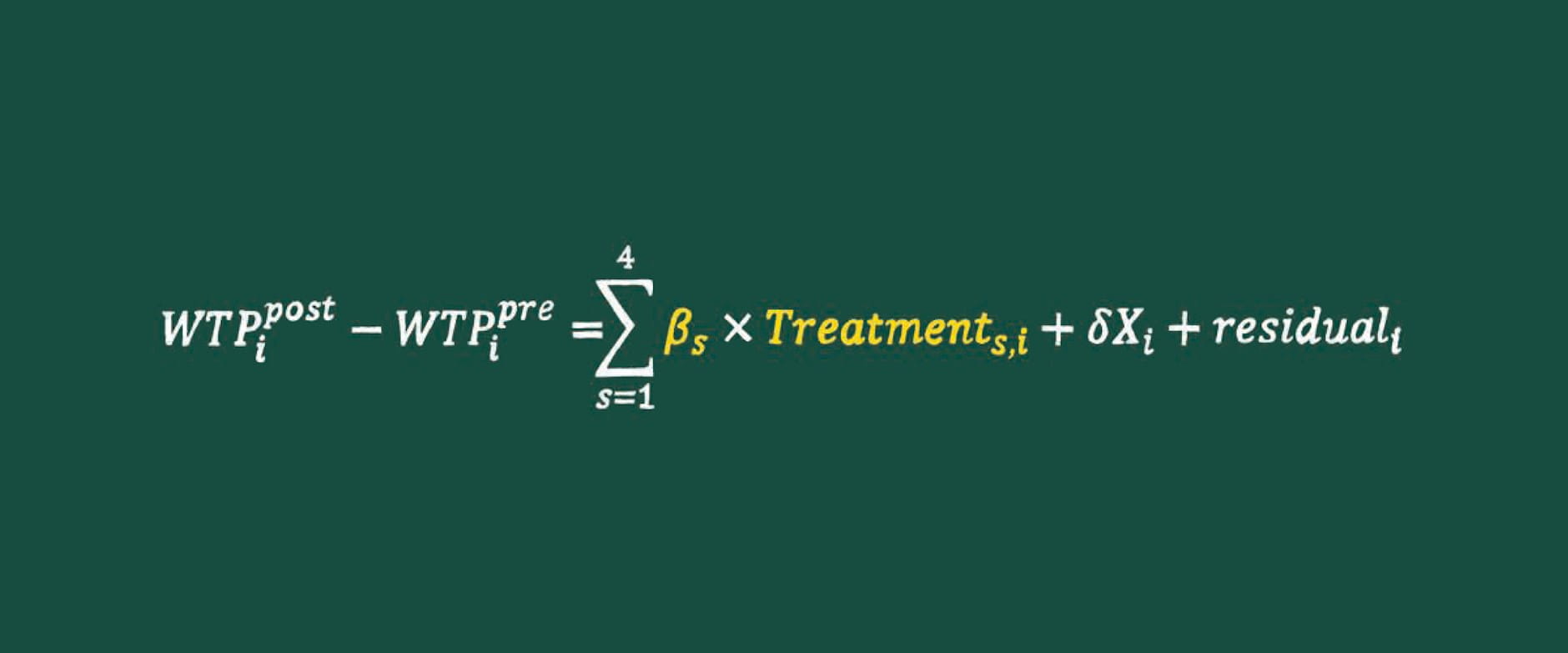Households produce a large share of the world’s greenhouse gas emissions, whether by consuming energy at home or burning fuel to travel. This makes individual actions crucial in mitigating climate change, but how can policy makers encourage more responsible behavior? Chicago Booth’s Michael Weber and his coresearchers sought to explore one possible avenue through a randomized trial, assigning respondents of a national survey in Germany to one of four treatment groups that received information from peer or expert sources about the impact of emissions on climate change and the ways people can reduce their carbon footprint. All four groups reported a greater willingness to act—in this case, to spend on carbon offsets—relative to a fifth group, a control that received no information on climate change. The researchers find that information framed as coming from peers created the strongest effect. To learn more, read “Peer Pressure Can Help Fight Climate Change.”

Illustration by Peter Arkle
Your Privacy
We want to demonstrate our commitment to your privacy. Please review Chicago Booth's privacy notice, which provides information explaining how and why we collect particular information when you visit our website.
